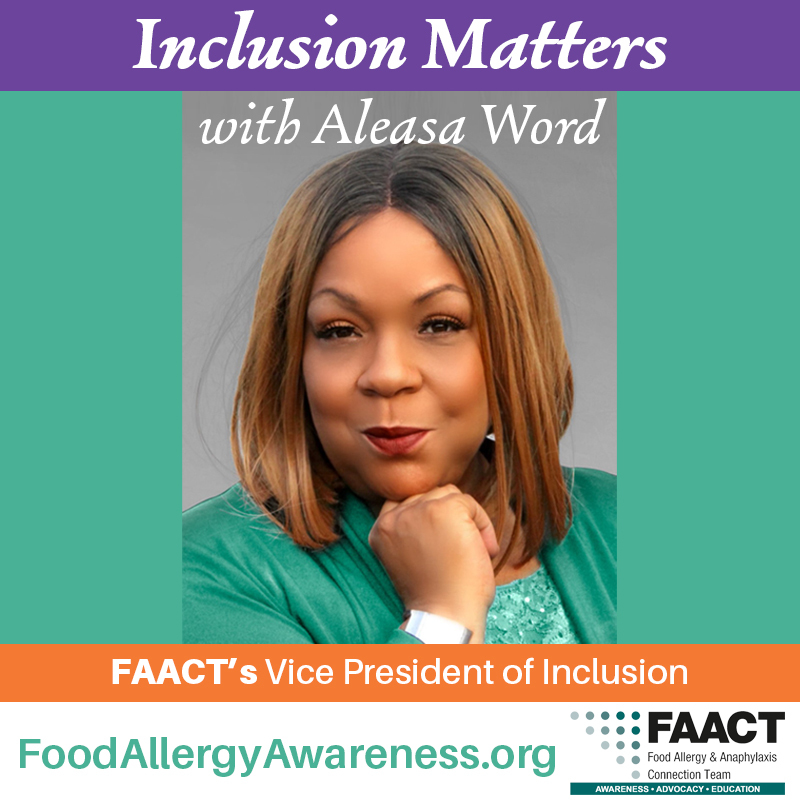Creating a Culture of Care: Supporting Food-Allergic Persons in Your Community
Subcategories

Creating a Culture of Care: Supporting Food-Allergic Persons in Your Community
by Aleasa Word, FAACT Vice President of Inclusion Initiatives
July 2025
Living with food allergies is not just about ingredients in foods—it is also about how to treat others. As adults, we are often tasked with the responsibility of teaching our kids that while not everyone is the same, we all deserve to be treated well. This responsibility includes us setting an example for children as well as other adults. Many adults who don’t have lived experience with food allergies or caring for those with food allergies sometimes struggle with this basic level of kindness.
If you’ve ever watched someone scan every label at the store with an air of worry or seen a child sit alone at a birthday party because the cupcakes aren’t safe, you are already aware that food-allergic living can be so much bigger than the content of your own meal. It impacts our connections with others, our confidence, and most importantly, our ability to fully feel safe in any situation.
What can you do to create a safer culture in your community? First, know that you do not have to be an expert. You just need the desire to show up differently and, in some cases, more differently than you ever have before. Some tips for yourself and to share with others who want to be more inclusive:
- Learn to Listen, Not Lecture: Everyone’s allergy story is different. Some people manage multiple allergies where others manage a single allergy, yet all are just as important. A good question to ask is, “What could I do to help you feel safer?”
- Make Shared Spaces Safer: Setting a tone of thoughtfulness often means thinking about what others need and want vs what you think they need or want. Make sure things are labeled clearly, always keep packaging available, and ensure that those around you know that asking questions helps promote safety.
- Shift the Culture: Here is where you work to normalize safety and remove the awkwardness others feel it causes. A steady supply of allergen-friendly snacks as a regular option helps make them seem like a normal part of living for all.
- Be THAT Voice: One of the most supportive things you can do is to speak up for yourself and others. Modeling empathy and awareness are ways to help others learn to follow your lead. It helps to set new standards for the way things SHOULD be instead of the way they often are.
- Model a Mindset of Learning: Others living without food allergies may feel inconvenienced due to a lack of understanding. Every time people are open to learning more about the impact of food allergies, we take one step closer to normalizing them.
Normalizing food allergies is a must. If the world continues on the “halfway acceptance” road, we run the risk of increased safety issues and minimizing the impact of food allergies on all of us. This is a serious health condition that must be woven into the fabric of everyday living like other conditions people face routinely. Because the effect of food allergies can be so different for everyone, it can be confusing for those not in the allergic world. This confusion, however, should not be the benchmark that untrained or non-professional individuals use to decide whether a person’s allergies are serious.
Everyone wants to feel as though they belong. Those with food allergies are no different. We need to embrace the idea that belonging can look different for everyone. Skits and comedy acts about food allergies often minimize their impact. As we learn to use our voices, stand for what is right, and demand respect for this health condition, we will see more of the change those in the food allergy world deserve.

